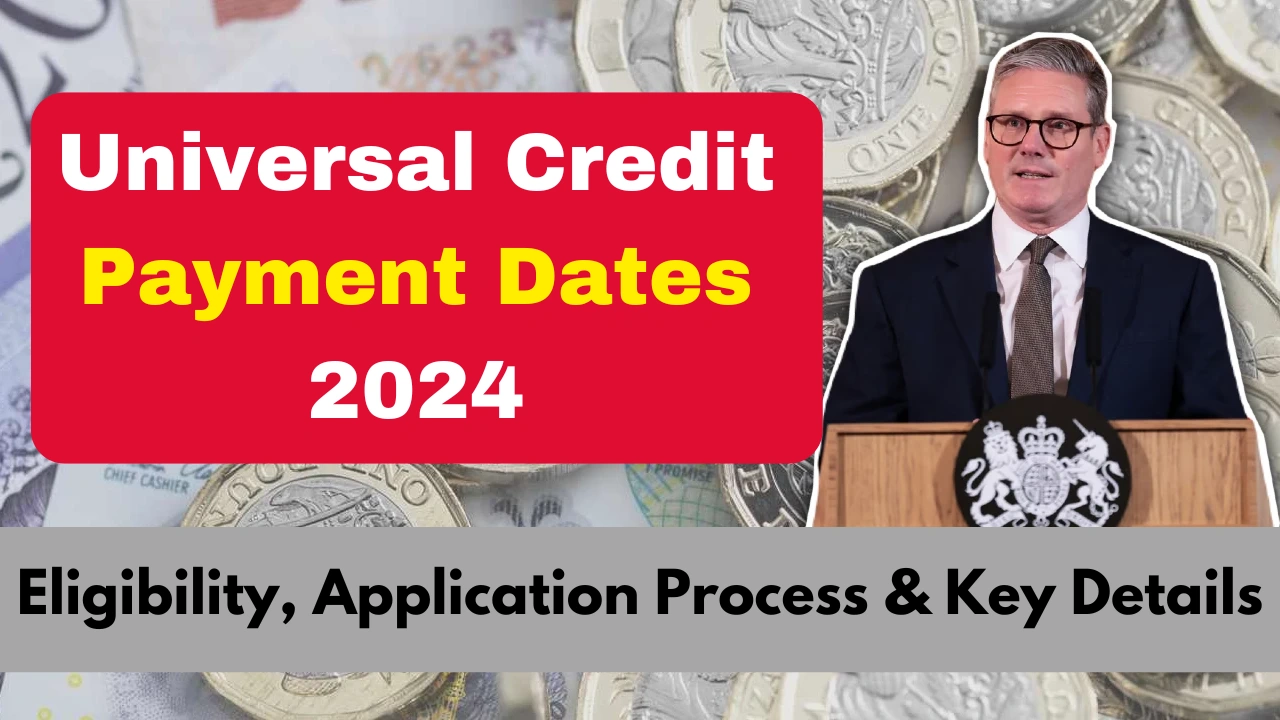Universal Credit is a vital financial lifeline for those facing low-income challenges in the UK. This article outlines all the important details about Universal Credit payments in 2024, from how to apply and eligibility requirements to payment dates and managing your benefits effectively.
What is Universal Credit?
Universal Credit is a comprehensive benefit introduced by the UK government to streamline support for low-income individuals and families. It replaces previous benefits such as Jobseeker’s Allowance, Housing Benefit, Income Support, and Working Tax Credit. The goal is to make it easier for people to transition back into work, with benefits gradually adjusted as earnings increase.
Universal Credit Payment Dates in 2024
Universal Credit payments are typically made monthly, with the payment date based on your personal assessment period. Payments are usually processed seven days after the end of your assessment period, but certain dates may change due to holidays or weekends. Here are a few examples of how payments are adjusted in 2024:
- Christmas: If a payment falls on December 25, 26, or 27, 2024, it will be paid on December 24, 2024.
- New Year: Payments due on January 1, 2024, will be made on December 29, 2023.
Steps to Apply for Universal Credit in 2024
- Check Your Eligibility
- Age: You must be 18 or older, though some 16-17-year-olds may be eligible.
- Residency: You must live in the UK and have the right to reside.
- Savings: If your savings exceed £16,000, you will not be eligible for support.
- Prepare Your Documents
- You will need details of your income (e.g., payslips), housing costs (e.g., rent or mortgage), bank information, and proof of identity (passport or driver’s license).
- Create an Online Account
- Set up your account through the Universal Credit portal to manage your claim, communicate with your work coach, and keep your details updated.
- Complete the Application Form
- Fill in personal and financial information accurately to ensure your benefit calculations are correct.
- Verify Your Identity
- Complete the verification process either online or by attending an appointment at a Jobcentre.
- Attend an Interview
- After your application is submitted, attend an interview with a work coach to establish your Claimant Commitment. This includes agreeing on obligations like job searching or skills development.
Managing Your Universal Credit Account
Once you’ve been approved for Universal Credit, it’s essential to manage your account effectively to ensure you continue receiving the correct support:
सम्बंधित ख़बरें
- Update Regularly: Keep your account up to date with changes in your income, housing, or family size to avoid incorrect payments.
- Budgeting Advance: If you’re in urgent need of money, apply for a Budgeting Advance, a short-term loan to cover immediate expenses.
- Track Your Payments: Regularly check your account to monitor payment dates and amounts, and keep an eye out for any changes.
Tips to Maximize Your Universal Credit Benefits
- Work Allowance: If you’re working part-time, you may be eligible for a work allowance. This allows you to earn a certain amount without affecting your benefits.
- Childcare Costs: Universal Credit can cover up to 85% of your childcare costs. Make sure to keep receipts and submit your claim within three months.
- Financial Support: Use free resources like MoneyHelper or Citizens Advice to help with financial planning and managing your benefits.
Common Challenges and Solutions
- Delays in Payments
- Solution: Apply for a Budgeting Advance if your payment is delayed to cover essential costs temporarily.
- Unexpected Deductions
- Solution: If you notice any unexpected deductions from your benefits, contact the Jobcentre for clarification and assistance.
- Claimant Commitment Issues
- Solution: If your circumstances change (e.g., health or caregiving responsibilities), speak with your work coach to modify your Claimant Commitment and avoid sanctions.
Frequently Asked Questions About Universal Credit in 2024
- When are Universal Credit payments made?
- Payments are usually made monthly, seven days after your assessment period ends. If a payment falls on a holiday, it will be paid on the last working day before the holiday.
- Can I receive Universal Credit if I have savings?
- Yes, but if you have savings over £16,000, you won’t be eligible. Savings between £6,000 and £16,000 will reduce your payments.
- What happens if I miss my interview?
- Missing your interview can delay your claim. Make sure to reschedule as soon as possible to avoid any sanctions.
- What if my circumstances change?
- If your circumstances change, such as starting or ending a job, moving, or having a change in household income, make sure to update your details on your online account.
- How does Universal Credit affect housing support?
- Universal Credit includes a housing element to help with rent. If your rent changes, update your details online to adjust your housing support.
- What is a Budgeting Advance?
- A Budgeting Advance is a loan available to cover one-off expenses like furniture or travel. You can apply for one through your online account and repay it over time through future Universal Credit payments.
By staying informed and proactive, you can make the most of Universal Credit, ensuring you receive the support you need during times of financial difficulty.



